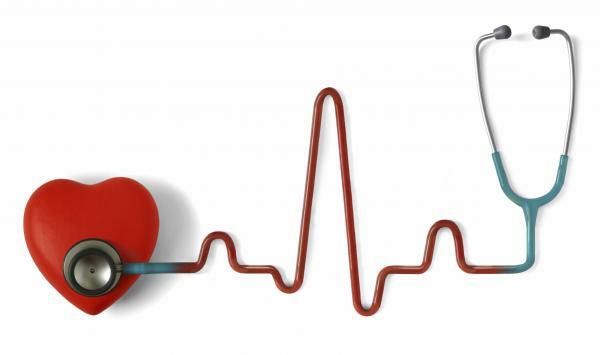For Ana M. Bastida of Miguel. 17 january 2018

Stress is a physiological and psychological response to events that upset our balance (Roberta Lee, The Super Stress Syndrome). Stress doesn't always have a negative connotation. Stress is normal, as a response or reaction of the body to a physical or emotional challenge, product of the demands of the environment. Now, human beings tend to live in chronic stressful situations: deadlines, irrational demands, adverse environmental conditions, etc. When the stress condition remains in time even though the stressor is no longer present, a chronic stress, which implies a loss of self-regulation capacity.
In this PsychologyOnline article, we are going to explain what the physical and psychological symptoms of chronic stress.
Stress, then, which has an adaptive function, ends up generating a detrimental condition for the organism. In the latter case, the body continues to pump hormonal flows, which creates a condition of permanent alertness, which affects physical and emotional health.
Once the physiological and psychological balance is broken, the body loses harmony and balance. If the loss of balance is long term (chronic stress), stress is disruptive, limiting, and disabling; If stress is temporary, the body has the ability to self-regulate and regain balance. Too much stress in your life can make you sick.
Carrying too much non-constructive stress load for a long time is like holding a bow with the string taut in indefinitely or leave a clothes iron stuck in the on position, sooner or later something will break or burn down; and that something can be you. What breaks will depend on where the weakest link is in your body. There are people who for a long time train their body to get sick. They put your body to operate in a dysfunctional way, out of control of your nervous system, your endocrine system and your system cardiovascular disease, and then they end up getting sick: cardiovascular diseases, high blood pressure, cancer, diseases gastrointestinal, etc.
As we can well see, whenever the stress responses are repeated with a lot of frequency or intensity, or during a period prolonged period of time (chronic stress), the body will find it difficult to recover and the physical and psychological disorders associates.
It is in these situations when the organism feels threatened and stress begins, the first thing that occurs is the increased heart activity, in order to pump more blood to the leg muscles and be able to run. If, for one reason or another, this occurs continuously and every day, the dysfunction can become chronic; And for a person who is predisposed to heart problems, it can even be fatal.
The problem is exacerbated when the nervous system identifies the situation as dangerous and without possibility of solution. That is, when the person thinks that the situation has no way out, that there is no solution to her problems, perceive that he is lost, that he has no control, that the same situation is repeated over and over again but he feels unable to solve... At that moment, decreases the efficiency of the immune system and the person is much more vulnerable to diseases, causing allergies, serious infections, rheumatoid arthritis, inflammations and muscle injuries, cardiovascular injuries ...
There are indications that stress causes Let's grow old before It has been proven, for example, that women who have children with a serious disease, their blood cells Whites present a greater aging process than in healthy women in whom it appears ten years longer late. "This could mean that leading a stressed life could cost us a few years of life."

The latest research has also revealed how high responsibility and a high volume of work are not factors, in and of themselves, stressful, because situations that are very stressful for some can be very pleasant, very rewarding, very exciting and real challenges for others. It is not, therefore, a matter for executives, but can occur in any person and at any level. It has been shown to be the lack of perception of control about everyday situations what most affects health.
Situations how to see that the end of the month is not reached, not having decision-making power, being unable to change a situation due to lack of skills, experiences of overwhelmed at work or at home, uncertainty about the future, not knowing what will happen after getting married or having a child or losing a child, after losing a job, after a separation, anticipating ongoing problems and, ultimately, perceiving a lack of control are issues especially harmful.
It would be interesting to stop for a bit and ask ourselves: Do I have a healthy stress level? Is it a level that helps me do my job better? Or have I crossed the limits? Reducing the situation to a simple "I am stressed" causes many people to ignore the red flags that appear throughout the body. These can take the form of headaches, muscle aches, or stomach aches; but also irritability, memory problems, lack of concentration and exhaustion among many other manifestations.
The stressful situations can be classified according to 3 categories:
- Little setbacks they are small things, temporary situations but that cause significant stress. Examples of this are: the loss of an object, a flat tire, missing the bus or having a traffic ticket, a bad grade from the children, a child who does not behave as we would like, a family discussion or with coworkers, something we would like to achieve and we have not achieved ...
- Big changes in life include both positive and negative facts. Examples of events Positive include a marriage, a graduation, starting a business or a job, the birth of a child... As for the negatives, the death of a loved one, the loss of a job, a separation, the fight for the custody of children, moving to care for the elderly ...
- Among the ongoing problems, there are stressful situations such as relationship, family or work problems, being unemployed with accumulation of debts, personal or family illnesses ...
The difficulty in detecting the first signs of stress and "deactivating" them to prevent damage to the body is, with modern society, more common every day. One of the main reasons is that we have gradually become accustomed to such a fast pace of life that we consider it completely normal, routine and essential to continue maintaining our style of lifetime. The stress responses we give to certain situations are sometimes "totally maladaptive" and, above all, when the response we give a specific situation does not require such a high level of activation, which undoubtedly interferes with the issuance of an appropriate response given that the level of activation continues to be maintained despite the stressful situation having disappeared (we still do not disconnect even when it is no longer necessary).

This article is merely informative, in Psychology-Online we do not have the power to make a diagnosis or recommend a treatment. We invite you to go to a psychologist to treat your particular case.


